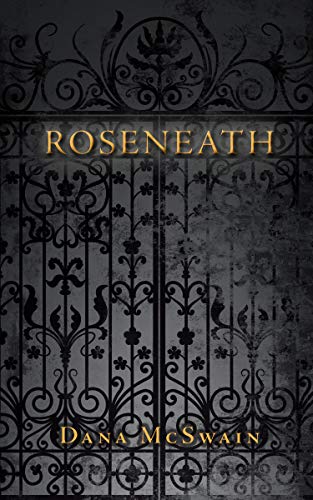
Roseneath received a 4+ star review, making it an IndieReader Approved title.
Following find an interview with author Dana McSwain.
What is the name of the book and when was it published?
Roseneath October 6, 2020
What’s the book’s first line?
“In the basement of Roseneath, an archangel wept.”
What’s the book about? Give us the “pitch”.
Georgia Pritchard’s dream house has a dead child in the attic and a monster in the basement but she can’t tell her husband because she’s not sure it’s really him anymore.
What inspired you to write the book? A particular person? An event?
Roseneath was inspired by the ten years I spent restoring an abandoned 1921 Tudor Revival in Cleveland’s inner ring that neighbors believed to be haunted. My husband was traveling a great deal for work and I found myself home alone in an enormous old house with a bit of a history. I started having dreams that there was the ghost of a little girl living in my attic. In my dreams, I could bring nothing into the attic but myself and when I left, I could take nothing with me. And every day I visited her, she got older. And I found the idea terrifying. So many horror stories are set in far-flung places. I think the Midwest, and particularly Cleveland, is uniquely situated to lead the way with genre fiction. Every day, we exist in the ruins of a Golden Age, surrounded by the remnants of the steel barons, oil barons and a long-lost bright future. Our homes and neighborhoods are generally over 100 years old and carry the weight of tragedy and despair, hope and progress. If that’s not haunting, I don’t know what is. It was easy for me to imagine a story like Roseneath in our old house, and it was interesting to watch the old house come alive with each page I wrote.
What’s the main reason someone should really read this book?
It’s a fresh take on the concept of ghosts. Something always bothered me about the classical portrayal of ghosts: rattling chains, ladies in white, frozen in time, that sort of thing. Edith Harkness, the ghost in Roseneath, is a singular creation that breaks that classical mold and reimagines what an afterlife could be. The house she inhabits, Roseneath, is a microcosm of existence, where horror meets mythology and fantasy in an everyday battle between good and evil.
What’s the most distinctive thing about the main character? Who-real or fictional-would you say the character reminds you of?
Georgia Pritchard has a quiet resilience. She’s a delicate creature with a steel inside that nothing can touch. Imagine Shelley Duvall’s Wendy Torrance meets Claire Foy’s Queen Elizabeth II.
How much time do you generally spend on your writing?
8-12 hours a day when I am actively writing, usually for 4-7 months at a stretch. The rest of the time I’m reading or researching.
What’s the best and the hardest part of being an indie?
I have creative control over both my product and my career. I hate the idea of a bean counter in the basement of a publishing house deciding if my work is marketable enough. I decide the path my art takes. The hard part is that there is no one to share the load. It all falls on you. But for the most part, and with a bit of hindsight, I see time and again that I am capable of handling more than I thought possible.
What’s a great piece of advice that you can share with fellow indie authors?
Believe in yourself and believe in your story. Don’t let someone talk you into being mediocre. And to quote a friend: beware those who want to keep you in your place. Your place is in the stars. Don’t waste your time on anyone who thinks otherwise.
Would you go traditional if a publisher came calling? If so, why?
No. No one else is ever going to care about my work or my career the way I do. And why would I pay someone else to do half of what I already do?
Is there something in particular that motivates you (fame? fortune?)
I want to leave behind a body of work and I am uninterested in waiting for permission to do so.
Which writer, living or dead, do you most admire?
Mary Shelley and David Sedaris. Mary Shelley because she wrote Frankenstein; or, The Modern Prometheus when she was an 18-year-old mother and in doing so, created an entirely new genre and David Sedaris because he makes me care about things I never knew I cared about.
